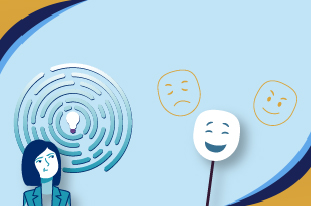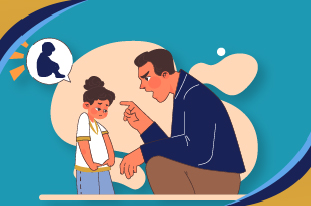People with OCD can find it challenging to have healthy relationships because OCD can cause anxious thoughts, compulsive behaviors, and misunderstandings. However, with the proper knowledge and support, people with OCD can build strong and loving relationships.
In this blog, we will look at the following: what exactly relationship OCD is, how it impacts relationships, and what can be done to help couples struggling with ROCD.
What is Relationship OCD?
Relationship OCD (ROCD) is a type of OCD where people have obsessive thoughts and compulsive behaviors about their relationships. These thoughts can make people doubt their feelings for their partner or question the legitimacy of their relationship. These thoughts can be distressing and intrusive.
What sets ROCD apart from usual relationship doubts? People with ROCD experience intrusive, persistent, and emotionally distressing doubts about their relationships. One common theme in ROCD is doubting whether you love your partner. People with ROCD may also focus on their partner’s minor flaws and worry that their partner doesn’t love them or will leave them. They often seek constant reassurance from their partner or friends.
These obsessive thoughts are often followed by compulsive behaviors, such as:
- Affiliation (checking on the partner to confirm they still love or find him appealing)
- They are more affected as compared to other relationships
- To make sure they still feel the way they say they do or are still ‘in love.’
- Staying away from anything likely to lead to uncertainties
These obsessive thoughts and compulsive behaviors can strain relationships, leading to misunderstandings and distance. For a person with OCD, ROCD can be overwhelming and confusing. It can also be difficult for their partner to understand.
Read More: Learning About The Connection Between OCD And Eating Disorders
General Relationship OCD Symptoms
Some of the common identifiers of OCD in relationships are as follows:
-
Perseverating Doubts and Questions
People with ROCD often doubt their feelings for their partner and question their compatibility. These doubts can be persistent and difficult to resolve, leading to a cycle of seeking reassurance and doubt.
-
Fear of Perfection
People with ROCD often have high standards for relationships and may focus on minor flaws in their partner or their relationship. This can lead to dissatisfaction and increased worry.
-
Seeking Reassurance
Sufferers of ROCD tend to seek complacency from their partner, family, or friends most of the time. They may ask questions such as, ‘Do you think we are right for each other?” or ‘Are you sure you love me?” This is done to decrease anxiety and depression, and most of the time, this action only provides some temporary relief. If the response is not desirable, it can also lead to mood disorder.
-
Comparing the Relationship
People with ROCD may compare their relationships to idealized versions of relationships, leading to feelings of inadequacy and doubt. This can make it difficult to appreciate their current relationship.
-
Self-Doubt and Guilt
What ROCD does to people is make them feel guilty for experiencing doubt in the first place, as though it is a sign that they lack dedication or are unconsciously abusive in their relationships. This guilt can be weighing on them and contribute to their stress as well as their anxiety.

The Effects Of Obsessive-compulsive disorder on interpersonal interaction
OCD also impacts the partner and the relationship since the person with OCD has a particular way of perceiving things. Some ways that OCD can impact relationships include:
Read More: Which Brain Region Is Believed to Play a Critical Role in OCD?
-
Stress experienced by both partners
Instead, ROCD creates a cycle of doubt and reassurance that can be exhausting for both partners. The person with OCD may constantly seek reassurance, while the partner may feel confused about how to help.
-
Loss of intimacy
Anxiety caused by ROCD can negatively impact intimacy in a relationship. Fear and avoidance of closeness can develop as the person with ROCD becomes preoccupied with their obsessive thoughts.
-
More disputes and conflicts
The constant need for reassurance and approval can lead to arguments and tension in relationships. Partners may feel criticized or controlled, which can strain the relationship.
-
Fear Of Judgement:
The person with OCD may also fear that the partner will not approve or disapprove of their thoughts or actions, causing the person with OCD to keep the illness a secret and experience loneliness.
-
Dependency On Reassurance
The partner may feel responsible for alleviating the anxiety of the person with ROCD. This can create a codependent relationship, where both partners rely on each other for reassurance.
Read More:
Ways To Cope With OCD in Relationships
Being in a relationship with OCD may not be easy, but where there are willing hearts, everything can be worked around to enhance the relationship. Here are some effective strategies that can help both the person with OCD and their partner cope:
-
Education about OCD:
Learning about OCD and ROCD can help partners understand what their loved ones are going through. This knowledge can help them provide support and empathy. Books, articles, and support groups are great resources for learning more about OCD.
-
Seek Professional Support:
A relationship ocd specialist in treating OCD can provide valuable support. Cognitive-behavioral therapy (CBT) and exposure and response prevention (ERP) are effective relationship OCD treatment. ERP involves exposing oneself to anxiety-provoking situations without engaging in compulsive behaviors. Couples therapy can also help partners learn how to support each other.
-
Practice Open Communication:
Both partners should feel comfortable sharing their feelings and needs without judgment. For example, if one partner finds the constant reassurance-seeking burdensome, they should express this calmly and respectfully. Similarly, the partner with OCD should be honest about their need for reassurance.
-
Delimitate Reassurance To Safe Levels:
One would wish to comfort their partner, especially when overstressed, but too much comforting is counterproductive since it leads to OCD. The couple needs to coordinate efforts when it comes to setting these standards. For instance, you may decide that to address the issue with reassurance, the spouse with OCD will only give reassurances five times a day, or the couple may decide on specific positive thoughts that may help the spouse with OCD when they feel anxious.
-
Change of source of Anxiety:
Promotes practices that bring about low stress and anxiety. Some activities include jogging and exercises like yoga, which can alter stress levels. Thus, anxiety can be managed through meditation, journaling, or other art forms, such as painting and listening to music. They can also enrich the relationship by practicing the activities together.
Read More: Understanding OCD Groinal Response: Unraveling the Misunderstood Symptoms
-
Building emotional resilience together:
OCD can be unpredictable, so it’s essential to be patient and understanding with each other. Practice empathy, offer support, and celebrate each other’s successes, no matter how small.
- Caring for your partner with OCD: It’s normal to feel confused, frustrated, or helpless when you’re in a relationship with someone with OCD. Here are a few tips on how to support your partner:
- Be patient: Getting over OCD takes time. Remember that every day is different, and you might face challenges, but you’ll also have good days.
- Avoid Judgment: Attempt to distinguish between the individuals and the OCD. What they are thinking or doing and over cannot determine their worth or define them in any way.
- Encourage Therapy: Encourage your partner to seek professional help and tell them you will accompany them if they would like to.
- Take care of yourself: It can be tiring to support someone with OCD. It’s essential to take care of yourself too. Ensure you have people you can talk to, like friends or a relationship OCD therapist.
Moving Forward Together!
Having OCD in a relationship can be challenging, but it’s not impossible to have a healthy relationship. Open communication, empathy, and mutual support are essential. Both partners need to understand OCD and work together to manage it. Remember, it’s a process; there will be good and bad days. With time and effort, couples can learn to navigate the challenges of OCD and build a strong relationship.
If you or your partner suffers from OCD, you need to understand that there are Treatment options available to you. Help, harmony, hope, and a healing relationship can work wonders. Ultimately, love and acceptance clear the path for a vast and beautiful relationship wherever OCD is in the picture. If you are also searching for the best telehealth option to attain relief from OCD in relationships, then the best choice is Orange Coast Psychiatry.


















